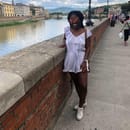Thumbnail: Dolce & Gabbana
“If we cannot end our differences, then at least we can help make the world safe for diversity.” – JFK
There are many people who believe that the hijab is a symbol of oppression. However, in Islam, the hijab represents purity and modesty. The idea that Muslim women are being forced to cover themselves arose in the West, along with the many misconceptions that surround the religion itself.
Which is why, in 2013, a hijabi activist named Nazma Khan created a movement that recognizes hijabi women worldwide. The purpose of World Hijab Day is to raise awareness toward the real message of the headscarf by allowing non-hijabi women to wear and experience the hijab.
Photo: Getty Images
The concern of the hijab being unfairly portrayed is in no way denying that there are women in some parts of the world who are forced to wear it. However, by assuming that all hijab-wearing women are oppressed, we disparage the choice of those who want to wear it. Liberation is found in the choice of allowing women to choose whether they want to cover up or not.
Photo: Instagram @asma_you
Viewing the hijab as an oppressive aspect of Islam is not only religious discrimination but sexism as well. Muslim men in areas like the Middle East and South Asia are also known to wear long, loose garments with head covers. However, in no way is it seemed as oppression as a hijab is, which thus alludes to how society views women’s power as her body, rather than her mind.
Photo: Instagram @warda_o_
Many of those who wear a hijab see it as a part of their identity; it creates a sense of empowerment. The headscarf allows women to reclaim their bodies in a society where consumerism controls what people should wear and look like. The hijab limits the objectification of women and gives them the power to be seen for personality and intellect.
Photo: Instagram @SomaliSpot
Recently, there has been an increase in the incorporation of hijab-wearing models in the fashion industry. Halima Aden, the first woman to wear a hijab in the Miss Minnesota USA Pageant, was one of the first hijabis to be included in magazine covers, advertisements and runways for big fashion companies such as Nike, Vogue and Rihanna’s makeup line – Fenty Beauty.
This is revolutionary because, for the first time, hijabi women are being represented in society rather than ignored. This increased representation in the entertainment industry has paved the way for an increased understanding and acceptance of the hijab.
Photo: Sølve Sundsbø


